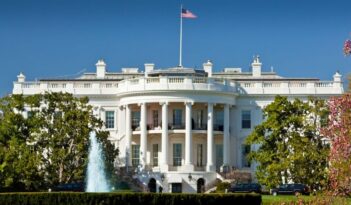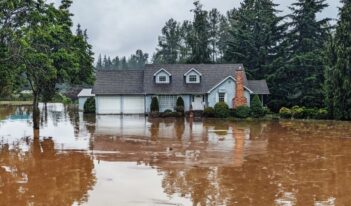
Recent Supreme Court decision misses a climate change solution that could satisfy all parties.
The Supreme Court was recently asked (yet again) to resolve the question of how the Clean Air Act should address emissions of greenhouse gases that contribute to climate change. In the recent Utility Air Regulatory Group v. EPA case, the Court allowed the U.S. Environmental Protection Agency (EPA) to regulate such emissions from stationary sources (e.g., factories) under two provisions of the Clean Air Act: the Prevention of Significant Deterioration program and the Title V permitting system. However, the Court concluded that the EPA could only regulate greenhouse gas emissions from stationary sources that the EPA would be regulating “anyway” because of their emissions of other regulated pollutants. Using some fairly creative statutory interpretation, the Court precluded the EPA from regulating stationary sources that would fall within the scope of the Clean Air Act only because of greenhouse gas emissions.
The major concern driving Justice Scalia’s majority opinion in reaching this result was the dramatic expansion of regulatory scope that regulating greenhouse gases under these Clean Air Act programs would entail. For example, he noted that up to six million sources might require permits under the Title V permitting program if sources that only emitted greenhouse gasses were fully covered by the Act. To him, this result was something that Congress could not have possibly conceived when it passed the Clean Air Act, and, to avoid it, the statute required a narrowing construction. Justice Scalia warned that including sources that only emit greenhouse gases would produce “calamitous consequences” because of the burden that permitting would impose on private parties and public agencies and also because “it would bring about an enormous and transformative expansion in EPA’s regulatory authority without clear congressional authorization.” He further accused the EPA of “laying claim to extravagant statutory power over the national economy” by including stationary sources that only emit greenhouse gases in its regulatory programs.
But readers of our prior The Regulatory Review essay may quickly realize that there is another alternative between complete exclusion of a range of activities from regulation and burdensome, complex permitting structures. That alternative is the general permit. General permits allow for regulation with a “light touch” and can significantly reduce concerns about red tape, potentially arbitrary agency decisionmaking, and regulatory overreach.
Why did the Court not seriously consider this option? (Scalia did mention the tool in a footnote, but dismissed it because the Court had not “been given any information” about the ability of general permits “to reduce the administrability problems” and because general permits would not solve “the more fundamental problem of EPA’s claiming regulatory authority over millions of small entities.”)
Part of the fault, perhaps, lies with the parties defending the EPA rule before the Court. The EPA brief and the environmental groups’ brief nowhere mention general permits. Further, the states that intervened on the EPA’s side did mention general permits as a tool to reduce compliance burdens, but only briefly in a couple of paragraphs. Only one filing discussed general permits in more detail, an amicus brief from the South Coast Air Qualtiy Management District in California and a climate change center at UCLA.
Of course, given the number of issues and arguments before the Court, the number of parties submitting briefs, and the limited space available in a brief, it is perhaps understandable why general permits did not get a full airing. But the end result is that the Court dismissed general permits out of hand as a way of addressing the challenges that greenhouse gases present to the Clean Air Act when, in fact, general permits have already been widely adopted by states and the EPA as a tool to manage permitting problems under both the Clean Air Act and the Clean Water Act. General permits are not novel, untested tools, as Scalia’s footnote seems to imply. They are workhorses of the regulatory state.
Perhaps another part of the fault lies with legal academics as a group. Both as researchers and as teachers, we have generally ignored the problems of how permit systems function and run. So it is no surprise that Scalia (a former professor himself, along with the two other justices most familiar with administrative law) did not fully appreciate or understand the role that structuring permit programs can play in making a regulatory system more or less feasible.
In the end, the Utility Air Regulatory Group decision was a missed opportunity. The Court ignored the realities of how administrative agencies function – and, in the process, forced itself to do some fairly challenging statutory interpretation that it might not have had to do otherwise.
This is not a problem that is going to go away, either. General permits will be increasingly important to the future of the regulatory state, particularly in a world where environmental harms are increasingly the result of the aggregation of billions of individual human actions.
For instance, climate change is itself the result of billions of individual human actions that are fundamentally reshaping the global climate system (and not for the better!). We believe that general permits will be an important tool in addressing climate change because general permits allow for regulation of widespread and common activities in ways that are politically, legally, and administratively feasible.
Hopefully, the next time the courts have to consider how permitting systems work – and how to interpret statutes in light of how those permitting systems work – they will give more consideration to general permits.
This piece builds upon the authors’ previous The Regulatory Review essay, “The Role of Permits in the Regulatory State.”





